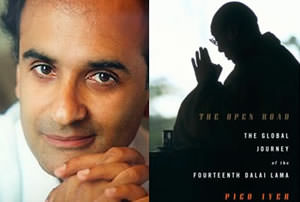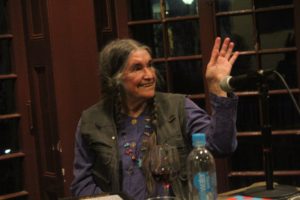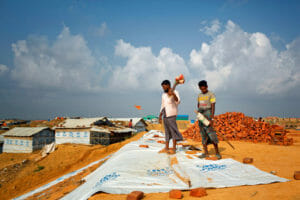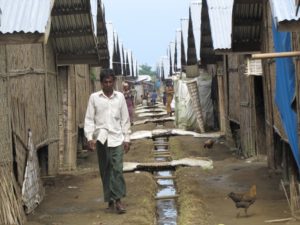Pico Iyer on Tibet, China and the Dalai Lama
As opening day of the Beijing Olympics approaches, the Chinese government and official media have intensified their attacks on the Dalai Lama, blaming him for the recent violent demonstrations in Tibet. Pico Iyer, whose new book is "The Open Road: The Global Journey of the Fourteenth Dalai Lama," talks with Truthdig's Jon Wiener about this intercultural conflict and about the Dalai Lama himself.
As opening day of the Beijing Olympics approaches, the Chinese government and official media have intensified their attacks on Tibet’s Dalai Lama, blaming him for the recent violent demonstrations in Lhasa, where Tibetans have been protesting against China’s restrictions on their religion and culture. The Tibetan government in exile, based in India, says the Chinese have killed more than 200 people in these protests, which started in March. Pico Iyer has been following the story — his new book is “The Open Road: The Global Journey of the Fourteenth Dalai Lama.” He spoke recently with Truthdig’s Jon Wiener.
Jon Wiener: The Dalai Lama is the spiritual leader of Tibetan Buddhism, and the international media personification of Tibet. But some Tibetans are criticizing him because he does not support the “Free Tibet” campaign, which seeks an end to the Chinese occupation of Tibet. Why doesn’t he support independence?
Pico Iyer: For 21 years he has said “Save Tibet” rather than “Free Tibet.” He asks for autonomy rather than independence. The last time I saw him, five months ago in Japan, he was reminding me that Tibet has a lot to gain from being part of China — materially. It is still an underdeveloped and impoverished place. He says that the more interconnection between cultures, the better.
Wiener: The Dalai Lama didn’t support the street protests of the past two months, led by monks. Why not?
Iyer: After those demonstrations he made the symbolic act of threatening to step down, which was his way of sending a message to the monks, saying: “Please, please, please don’t practice violence. Speak out on behalf of Tibet, keep championing the freedoms you deserve, but don’t demonize or antagonize the Chinese in the process.”
Wiener: And yet China’s President Hu Jintao has blamed the Dalai Lama for inciting the protests in Lhasa. Recently, Hu said, “We hope the Dalai will stop acting to separate the homeland, stop orchestrating the inciting of violent acts.”
Iyer: It’s so bitterly funny that the Chinese are accusing him of fomenting violence when he’s doing everything he can to try to restrain it. When he led prayers after those disturbances, the first people he prayed for were the Chinese individuals who had been the victims of that violence.
Wiener: The official line in China is that the Dalai Lama is a “splittist.”
Iyer: It’s ironic that the Chinese accuse him of creating divisions, because he always works from the core Buddhist principle, which is interdependence. Everything is connected. It’s an example of how gratuitous their insults are. He says we have to keep extending the hand of friendship until the Chinese government wakes up to its better self.
Wiener: When and how did you first meet this Dalai Lama?
Iyer: I met him when I was 17. My father had met him the first year he came out of Tibet into exile, 1959-60 — my father was an Oxford professor of philosophy interested in Buddhism. He sailed from England back to India because he realized this was the first time in history this great repository of centuries of wisdom was available to the outside world. When I went back to India as a teenager, my father thought I should go and meet this celebrated teacher, so I did. And I’ve been returning ever since.
Wiener: When you met him as a teenager, what was your attitude? Were you a Buddhist?
Iyer: No, and I’m afraid I’m not a Buddhist to this day — although I’ve learned a lot from many Buddhists, including the Dalai Lama. In those days I was a typical teenager. I wanted to meet Keith Richards or Jerry Garcia. I didn’t want to meet a colleague of my father’s. But one way or another, that initial meeting made enough of an impression on me so that, as soon as the Dalai Lama started coming to this country five years later, I always went to hear him, and each time I heard him I learned and understood a little more than before.
Listen to audio of the full interview in mp3 or podcast format.
Your support matters…Independent journalism is under threat and overshadowed by heavily funded mainstream media.
You can help level the playing field. Become a member.
Your tax-deductible contribution keeps us digging beneath the headlines to give you thought-provoking, investigative reporting and analysis that unearths what's really happening- without compromise.
Give today to support our courageous, independent journalists.





You need to be a supporter to comment.
There are currently no responses to this article.
Be the first to respond.